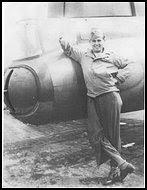Russian Rhumba
We lost Dad eight years ago today. He was spared the pandemic, the University of Kentucky’s Thursday night loss to the St. Peter Peacocks in the first round of NCAA basketball, and now, the worst street fighting in Europe since World War II.
I wondered this morning, what he would say about Ukraine? I imagine he would think we should be doing more, but he would also recognize the difficulty and delicacy of the U.S. position.
I do know he would be retelling one of his favorite WWII stories, about the time he visited Mirgorod as part of the shuttle bombing missions known as Operation Frantic.
Dad was in the second of those runs, which departed England on June 21, 1944, part of a task force that included 114 B-17 bombers and 70 P-51 fighters, which Dad (and many others) called “little friends.” I probably owe my existence to these little friends since their addition to the war halted the unsustainable losses of the heavy bombers and their crews.
Dad’s plane, part of the 95th Bomb Group, landed in Mirgorod, which, as Dad later wrote in an article he called “Russian Rhumba” published in a bomb group newsletter, proved to be a good decision. The 43 B-17s that landed in Poltava were destroyed in an overnight raid by the Luftwaffe, and, says Dad, “it didn’t take a Ph.D. in foreign affairs from Harvard to see the outrageous deception of our Russian allies.”
Dad ended up flying deeper into the Ukrainian section of the Soviet Union, landing in what was then known as Kharkov and spending a few days with Russian soldiers. One of them “wanted to exchange firearms with me,” Dad wrote. “I was wearing a G.I. 45 and he was wearing a Russian issue. Needless to say, I had to say nyet to that proposal.”
Reading this story, so full of “Dad’isms” that make me smile and cry at the same time, is a good thing to do today, when our hearts reach out to the descendants of those people my father met so many years ago.
